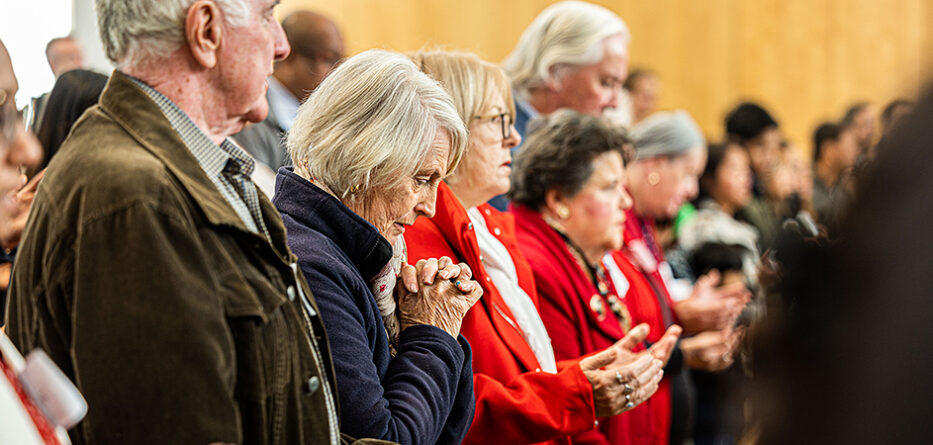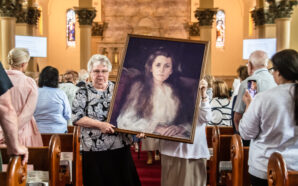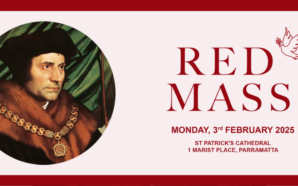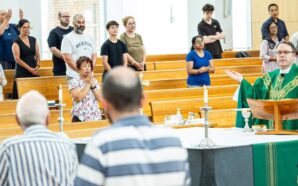MESSAGE OF HIS HOLINESS POPE FRANCIS
FOR THE THIRD WORLD DAY FOR GRANDPARENTS AND THE ELDERLY
23 July 2023
“His mercy is from age to age” (Lk 1:50)
Dear brothers and sisters!
“His mercy is from age to age” (Lk 1:50). This is the theme of the Third World Day for Grandparents and the Elderly, and it takes us back to the joyful meeting between the young Mary and her elderly relative Elizabeth (cf. Lk 1:39-56). Filled with the Holy Spirit, Elizabeth addressed the Mother of God with words that, millennia later, continue to echo in our daily prayer: “Blessed are you among women and blessed is the fruit of your womb” (v. 42). The Holy Spirit, who had earlier descended upon Mary, prompted her to respond with the Magnificat, in which she proclaimed that the Lord’s mercy is from generation to generation. That same Spirit blesses and accompanies every fruitful encounter between different generations: between grandparents and grandchildren, between young and old. God wants young people to bring joy to the hearts of the elderly, as Mary did to Elizabeth, and gain wisdom from their experiences. Yet, above all, the Lord wants us not to abandon the elderly or to push them to the margins of life, as tragically happens all too often in our time.
This year, the World Day for Grandparents and the Elderly takes place close to World Youth Day. Both celebrations remind us of the “haste” (cf. v. 39) with which Mary set out to visit Elizabeth. In this way, they invite us to reflect on the bond that unites young and old. The Lord trusts that young people, through their relationships with the elderly, will realize that they are called to cultivate memory and recognize the beauty of being part of a much larger history. Friendship with an older person can help the young to see life not only in terms of the present and realize that not everything depends on them and their abilities. For the elderly, the presence of a young person in their lives can give them hope that their experience will not be lost and that their dreams can find fulfilment. Mary’s visit to Elizabeth and their shared awareness that the Lord’s mercy is from generation to generation remind us that, alone, we cannot move forward, much less save ourselves, and that God’s presence and activity are always part of something greater, the history of a people. Mary herself said this in the Magnificat, as she rejoiced in God, who, in fidelity to the promise he had made to Abraham, had worked new and unexpected wonders (cf. vv. 51-55).
To better appreciate God’s way of acting, let us remember that our life is meant to be lived to the full, and that our greatest hopes and dreams are not achieved instantly but through a process of growth and maturation, in dialogue and in relationship with others. Those who focus only on the here and now, on money and possessions, on “having it all now”, are blind to the way God works. His loving plan spans past, present and future; it embraces and connects the generations. It is greater than we are, yet includes each of us and calls us at every moment to keep pressing forward. For the young, this means being ready to break free from the fleeting present in which virtual reality can entrap us, preventing us from doing something productive. For the elderly, it means not dwelling on the loss of physical strength and thinking with regret about missed opportunities. Let us all look ahead! And allow ourselves to be shaped by God’s grace, which from generation to generation frees us from inertia and from dwelling on the past!
In the meeting between Mary and Elizabeth, between young and old, God points us towards the future that he is opening up before us. Indeed, Mary’s visit and Elizabeth’s greeting open our eyes to the dawn of salvation: in their embrace, God’s mercy quietly breaks into human history amid abundant joy. I encourage everyone to reflect on that meeting, to picture, like a snapshot, that embrace between the young Mother of God and the elderly mother of Saint John the Baptist, and to frame it in their minds and hearts as a radiant icon.
Next, I would invite you to make a concrete gesture that would include grandparents and the elderly. Let us not abandon them. Their presence in families and communities is a precious one, for it reminds us that we share the same heritage and are part of a people committed to preserving its roots. From the elderly we received the gift of belonging to God’s holy people. The Church, as well as society, needs them, for they entrust to the present the past that is needed to build the future. Let us honour them, neither depriving ourselves of their company nor depriving them of ours. May we never allow the elderly to be cast aside!
The World Day for Grandparents and the Elderly is meant to be a small but precious sign of hope for them and for the whole Church. I renew my invitation to everyone – dioceses, parishes, associations and communities – to celebrate this Day and to make it the occasion of a joyful and renewed encounter between young and old. To you, the young who are preparing to meet in Lisbon or to celebrate World Youth Day in your own countries, I would ask: before you set out on your journey, visit your grandparents or an elderly person who lives alone! Their prayers will protect you and you will carry in your heart the blessing of that encounter. I ask you, the elderly among us, to accompany by your prayers the young people about to celebrate World Youth Day. Those young people are God’s answer to your prayers, the fruits of all that you have sown, the sign that God does not abandon his people, but always rejuvenates them with the creativity of the Holy Spirit.
Dear grandparents, dear elderly brothers and sisters, may the blessing of the embrace between Mary and Elizabeth come upon you and fill your hearts with peace. With great affection, I give you my blessing. And I ask you, please, to pray for me.
Rome, Saint John Lateran, 31 May 2023,
Feast of the Visitation of the Blessed Virgin Mary
FRANCIS
With thanks to The Vatican.








